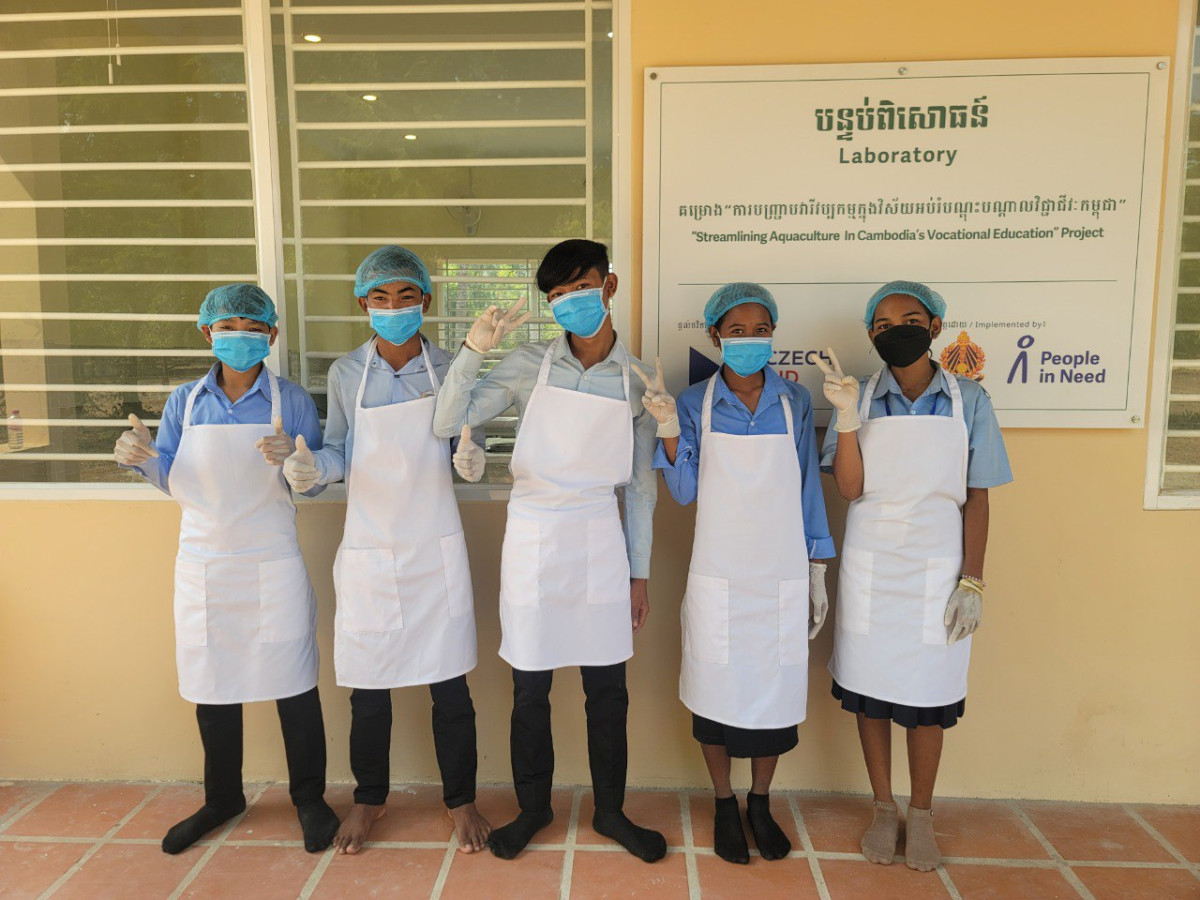Aquaculture and Technical Education: Supporting Cambodian Youth
Published: May 12, 2025 Reading time: 3 minutes Share: Share an articleAquaculture is essential to Cambodia’s technical education system; it offers students valuable skills in response to the labour market requirements. By equipping students with practical knowledge, the education system paves the way for students to continue their studies and pursue various career opportunities in this dynamic industry.

At Norodom Sihamoni General Education and Technical High School in Kampong Chhnang province, Mrs Khun Ratana, an experienced aquatic processing teacher, has been instrumental in shaping students' futures. She has taught various practical processing techniques, including the fermentation and production of traditional Cambodian products such as fermented fish paste (Pangasius paste) and smoked fish. These valuable skills not only deepen the students' understanding of aquaculture but also help them create value-added products that can be sold at higher prices, thus improving their financial prospects.
The project has played a crucial role in enhancing the curriculum, blending both theory and practice in key areas such as fish hatchery, fish breeding, and food processing. Our comprehensive approach ensures that the upper secondary technical education in aquaculture aligns with the market's evolving needs. To further strengthen teaching, the project also provided a "Training of Trainers" programme to improve educators' technical skills and teaching methods, enabling them to deliver lessons with a deeper understanding.
While theoretical knowledge is essential, its practical application is critical. The project has provided the equipment and materials for learning aquatic processing, allowing students to apply their theoretical knowledge to practical tasks directly. This hands-on experience makes students better prepared to create and commercialise products, boosting their confidence and expertise.
With a strong foundation in aquaculture theory and practical processing techniques, students are better equipped to continue their education in an advanced aquaculture or food technology programme. Those entering the workforce can pursue careers in the aquaculture or aquatic processing industries or even start their own businesses.
As Cambodia faces growing demand for sustainable fisheries and high-quality aquatic products, the importance of technical education in aquaculture cannot be overstated. By providing students with both practical and soft skills, aquaculture education not only helps individuals build successful careers but also strengthens Cambodia’s economy. Ongoing innovations in fish farming and aquatic product processing create new opportunities and foster long-term growth.
This project is funded by Česká rozvojová agentura - CzechAid and the Czech Embassy in Phnom Penh, and implemented by the Vocational Orientation Department of MoEYS Cambodia and People in Need Cambodia.


